|
|
Bravo Cura
Celebrating José Cura--Singer, Conductor, Director
Concerts 2005 - 2010
Cologne - 2005
|
|
|
Miskolc - 2005 / Conductor
|
Festival diary with José Cura Nemzetközi Operafesztivál 12 June 2005 On the second day of the festival, José Cura conducted Rossini's Stabat Mater and Zoltán Kodály's Budavár Te Deuma at the new venue of the Opera Festival, the University of Miskolc. On the morning of the concert, the Maestro held a press conference at the Palace Hotel in Lillafüred and willingly answered the questions of Hungarian and foreign journalists. Question: You were at the opening concert of the festival. How did you like it? José Cura: I applauded until my palms ached. Andrea Rost, a good friend, sang more beautifully than ever, and Zoltán Kocsis and the National Philharmonic, with whom I have worked several times, are always great. But I also have to say it’s a weird thing to be a member of an audience. Whenever I find myself in such a situation, I feel like a caged lion. Once you've experienced what it's like to be on stage, you don't want to applaud others anymore. Singing and conducting means life to me. Question: Can you separate whether you are a singer and a conductor? José Cura: Either I sing or I conduct. But there is no difference in my attitude. Both are equally important. When I was studying conducting and composition at the academy, one of my teachers told me to learn to sing. I wasn’t interested. Not because I didn’t want to be a singer, but because I thought I could be a better conductor. I first conducted at the age of 15, and as a professional singer I only took the stage at the age of around 30. What I noticed about myself was that I used to sing like a conductor, and now I conduct like a singer. I feel really good in both roles because I always know what the other side wants. If I am singing, I can help the conductor and I can even tell you that a singer may even save the performance if the conductor is not in control of the situation. And as a conductor, I know how I can help singers. Question: You often performs in Hungary. Why? José Cura: It is very easy to answer this: I love the Hungarian people. I work in many places in Europe, for example, Germany, France, England, but I feel the best in Hungary, so I come two or three times a year. In a country where you have to fight for a living, where you have to fight for cultural events to take place, where there are many who are struggling to survive, I perform for less. But it is not about money - what I have just said, please don’t pass it on to Western European impresario - but about the work. Hungarian musicians are very inspiring. Working with Zoltán Kocsis is always a special experience, as he is a brilliant musician with fantastic knowledge. I feel like there's a Hungarian band waiting for me to hit the right button, and if I press it, the work will start, the fantasy will unfold, and the talent will explode. Question: José Cura, the famous tenor, conducts Kodály. How did you see thist work? José Cura: When we started the rehearsals of Zoltán Kodály's Budavár Te Deuma, I felt strange that I, the Argentinean, would have to explain to Hungarian musicians what I thought of this work. This was a special situation because I don’t know the traditions of performing the piece. I only know the score! Although I have already conducted the Dances of Galánta with the National Philharmonic, the Budavár Te Deum was new to me. When I met Zoltán Kodály's widow, Sarolta Péczely, during the rehearsals, I told her that I would play what is written in the sheet music. "I look forward to it,” she laughed, “because I have not heard it done so.” Question: So is the Kodály work a challenge for you? José Cura: It's not a challenge, it's an honor to conduct it. The Hungarian Radio Philharmonic Orchestra and Choir are great musicians and the soloists are also very good so it was a pleasure to work with them. You are now asking the conductor what the concert will be like. I can only answer how I would like it to be. The conductor's work ends, with some exaggeration, of course, with rehearsals. What the audience hears depends on the soloists, the orchestra, the choir. It is at that moment, the actual performance, when we determine if we achieved what we wanted. If the concert is good, if the musicians are celebrated by the audience, then it can be said that the conductor has done his job well. Question: What do you think about Budavár Te Deuma? I've conducted many ecclesiastical works and countless Te Deums, but Kodály's is different from the others. This work is not a painful supplication but a cry. In 1936, between the two world wars, it was composed by an author in a country threatened and crippled on all sides. That’s why his music - understand what I’m saying - is almost blasphemous. He is not begging, but almost demanding, demanding God, where are you? Can you see us? And if you see our misery, why don't you help us? Question: What do you think about the Bartók + ... Miskolc International Opera Festival? José Cura: I was happy to come to Miskolc because, as I said, I like to work in places where there is not only work for which I receive a fee, but where something is born because the artists, the audience and the community want something. There are many elegant, luxury festivals in the world. Miskolc is not like that. The city and the surrounding area, as far as I know, are in a difficult situation, there are many worries, life is difficult. If enthusiastic and talented people can create a festival of this quality, a festival of such quality in such a city, its message is very important. A well-established cultural event may be famous but the festival in Miskolc has shown that where there is will and determination, what can seem impossible can be realized. This city should be proud of the festival.
|
|
Thanks to Zsuzsanna for providing rehearsal photos!
Press Conference
|
Event - 2005 / World Games Opening Ceremony
|
|
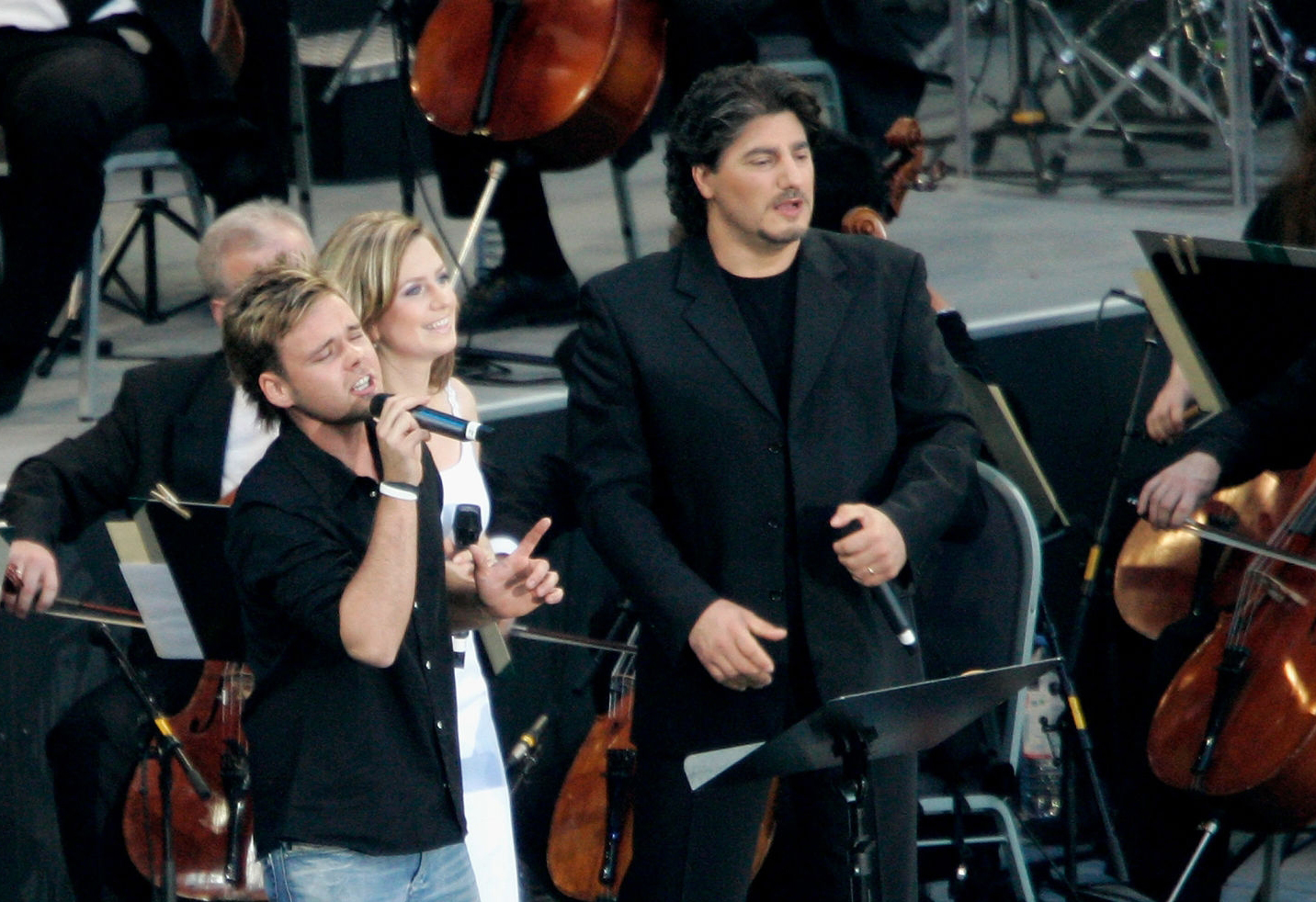
|
|
|
|
|
|
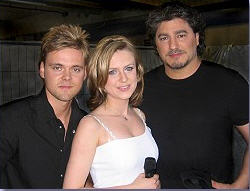
|
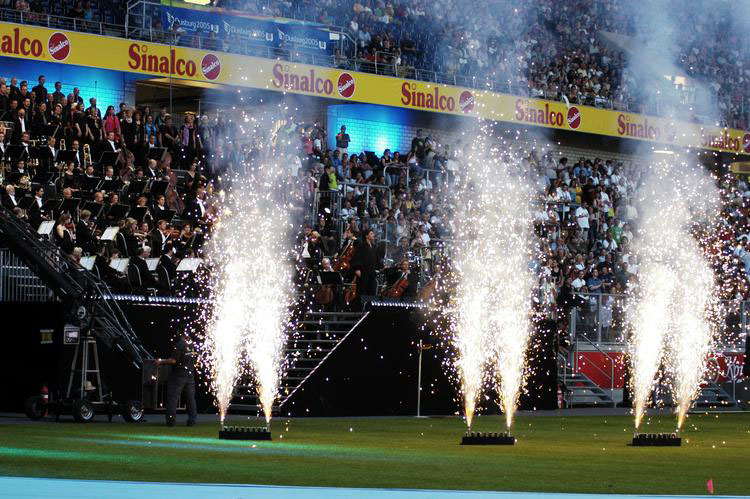 |
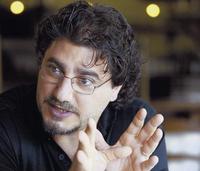
|
|
|
|
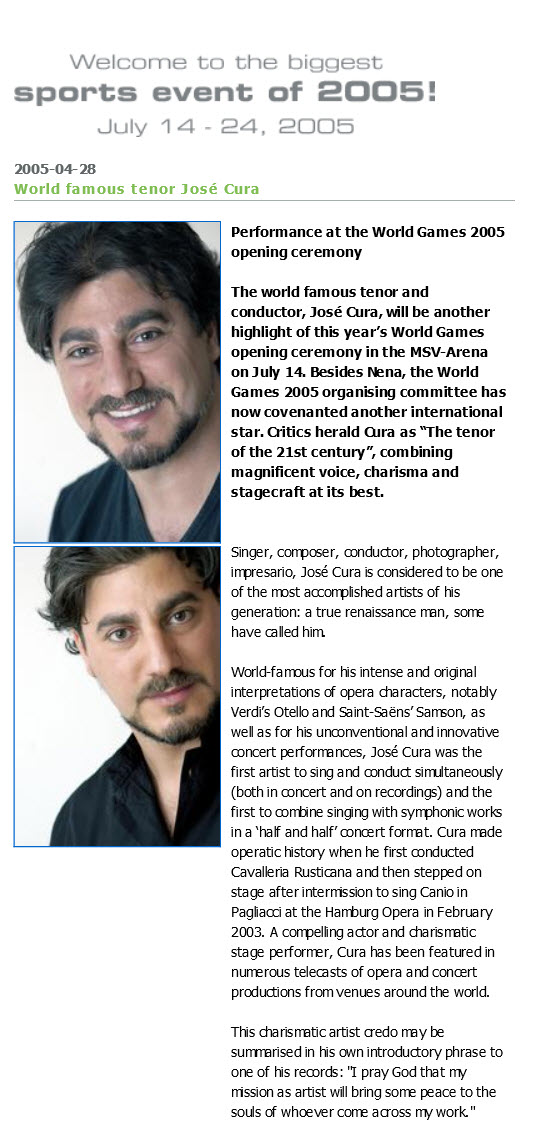 |
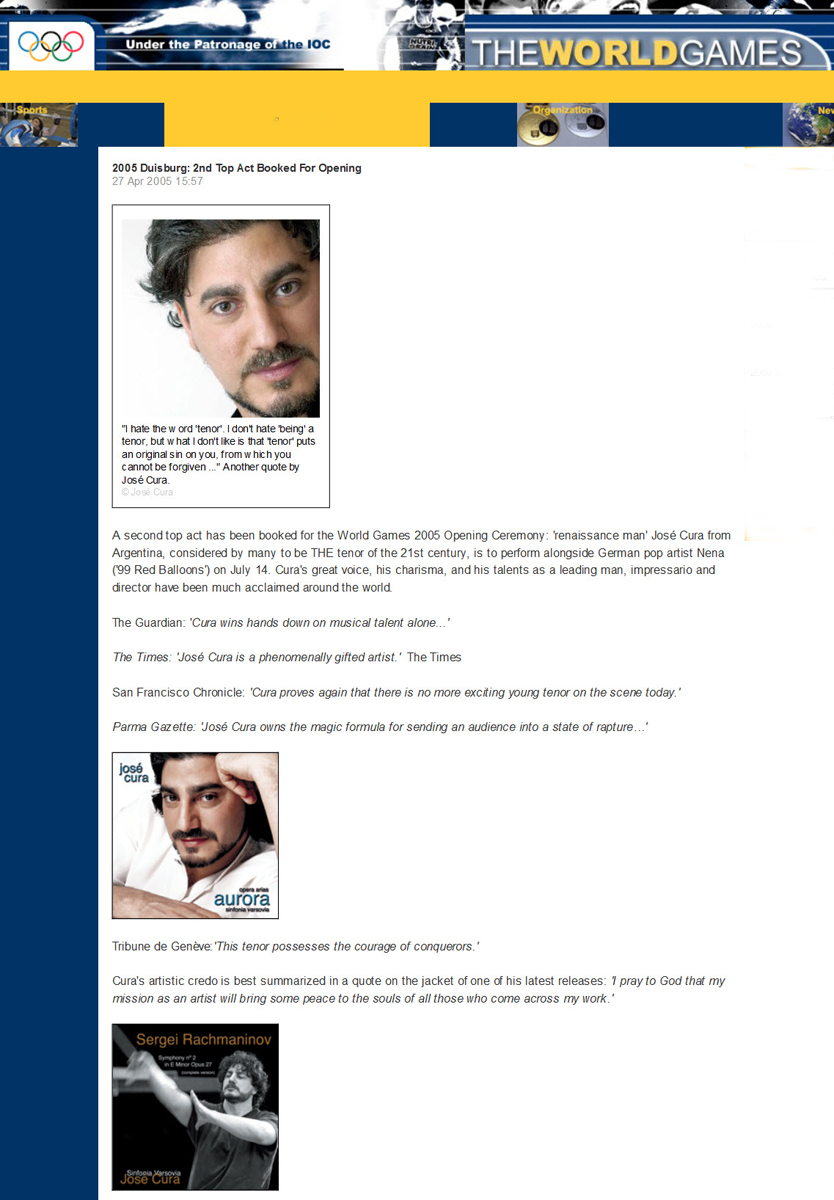 |
Plymouth 2005 / Conductor

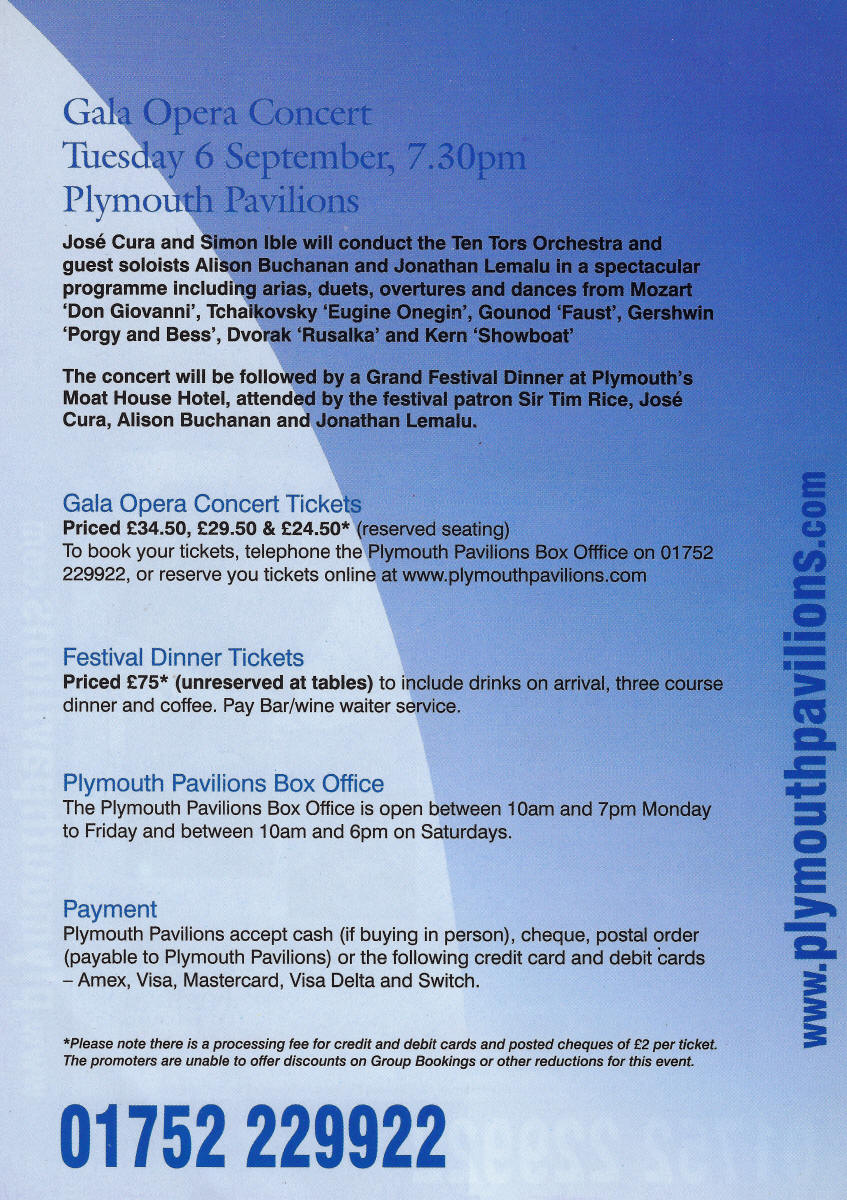
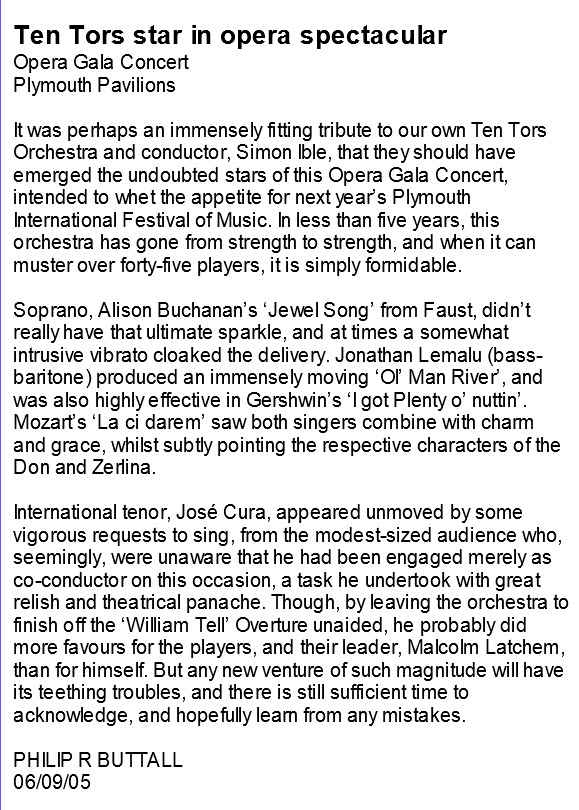 |
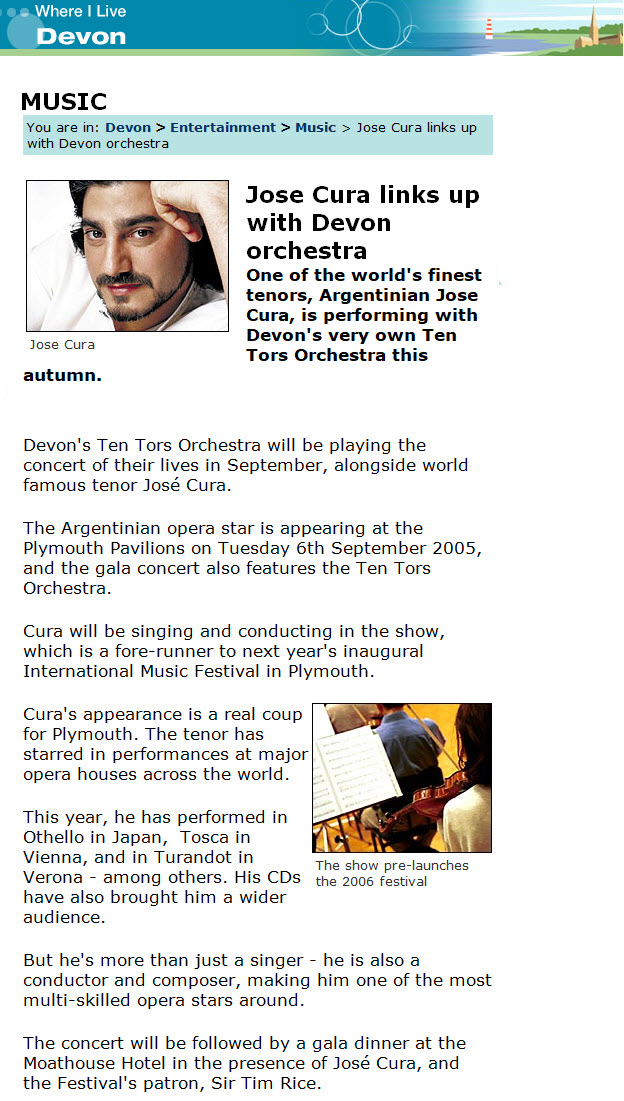 |
Killarney 2005
Italy 2005
Concert / Telethon / Award Presentation
Busseto / Piacenza
|
|
Last Updated: Sunday, April 25, 2021 © Copyright: Kira